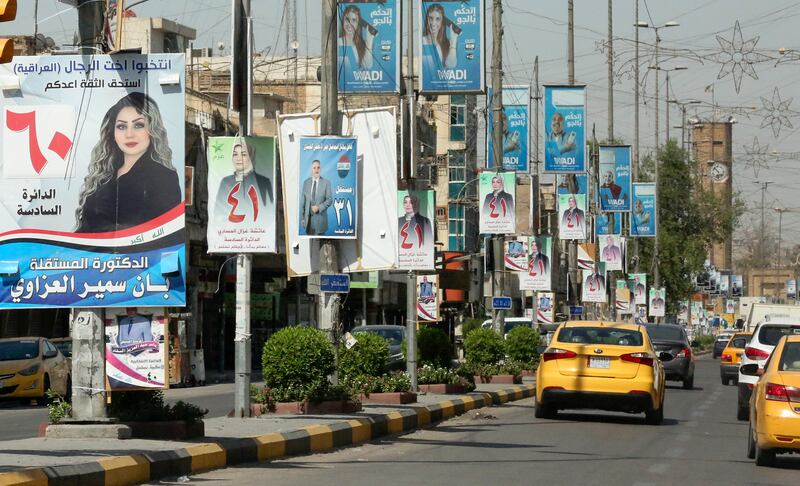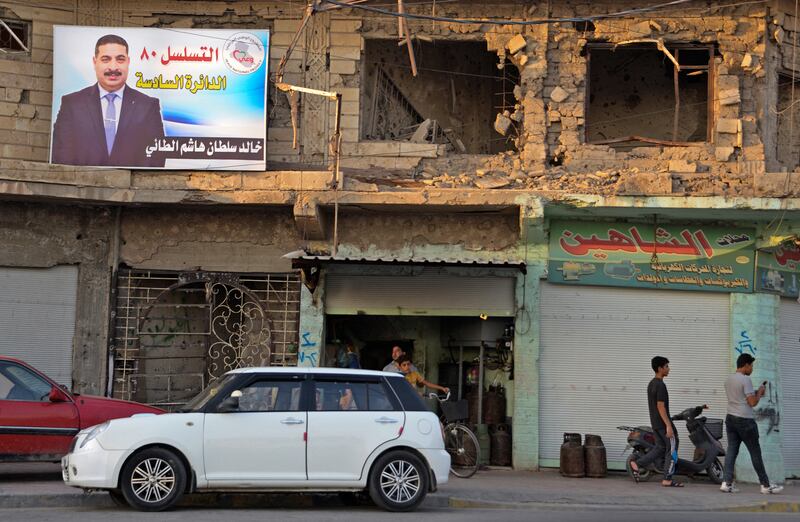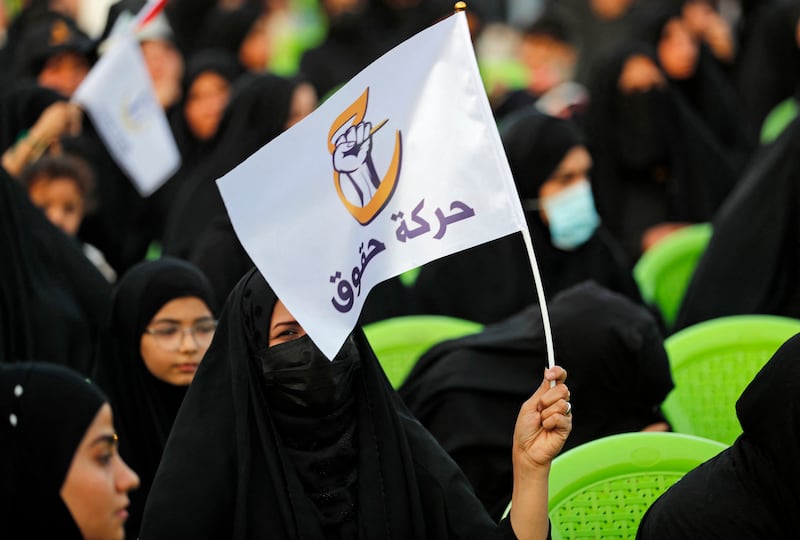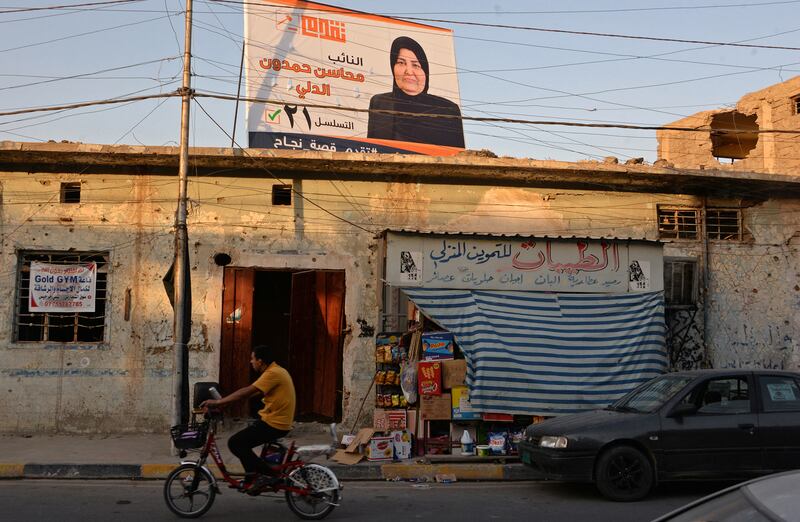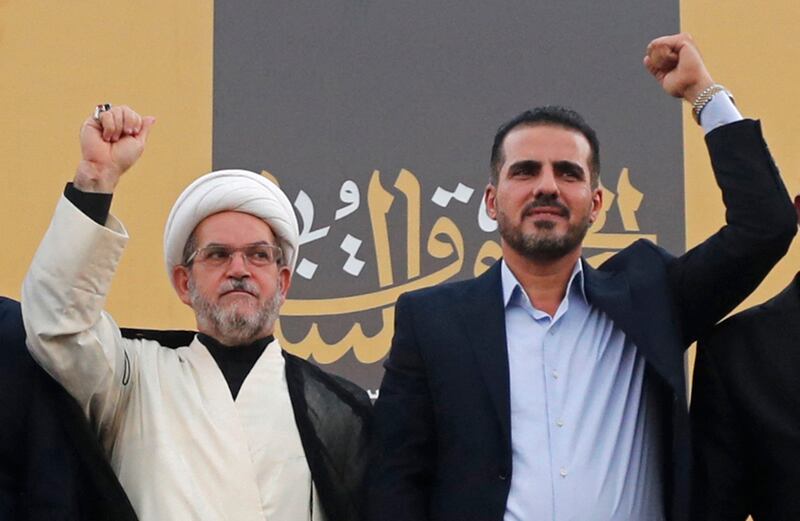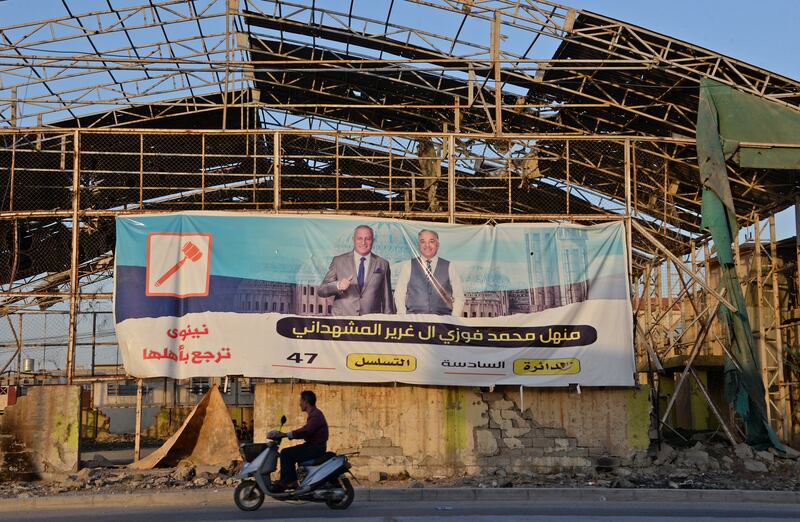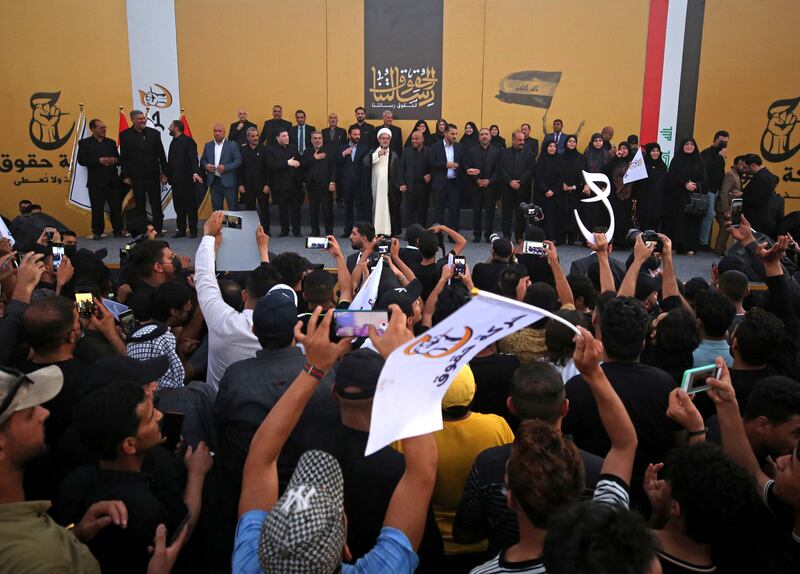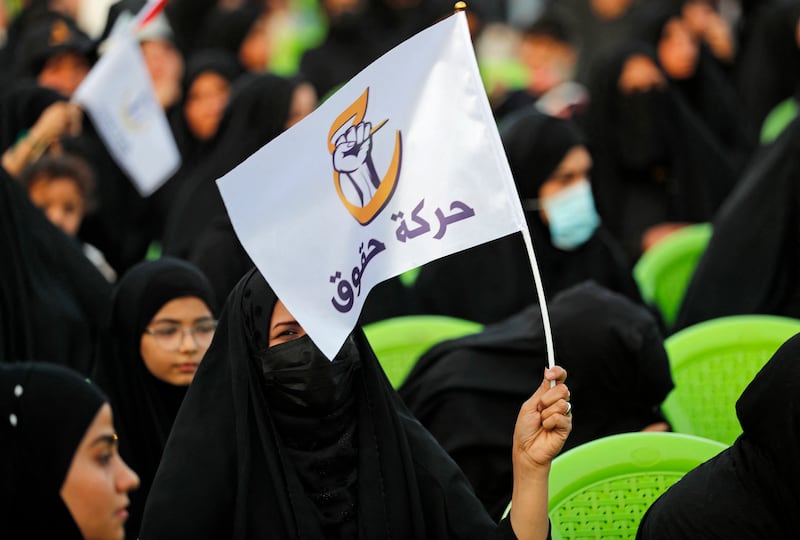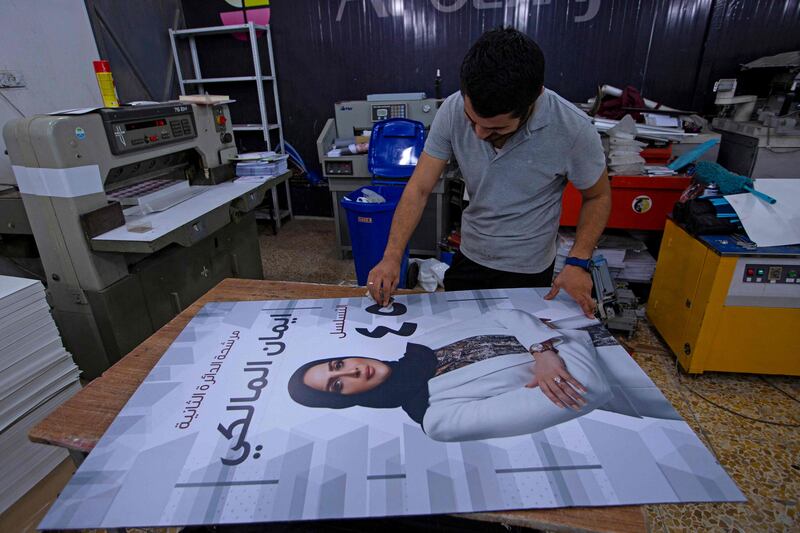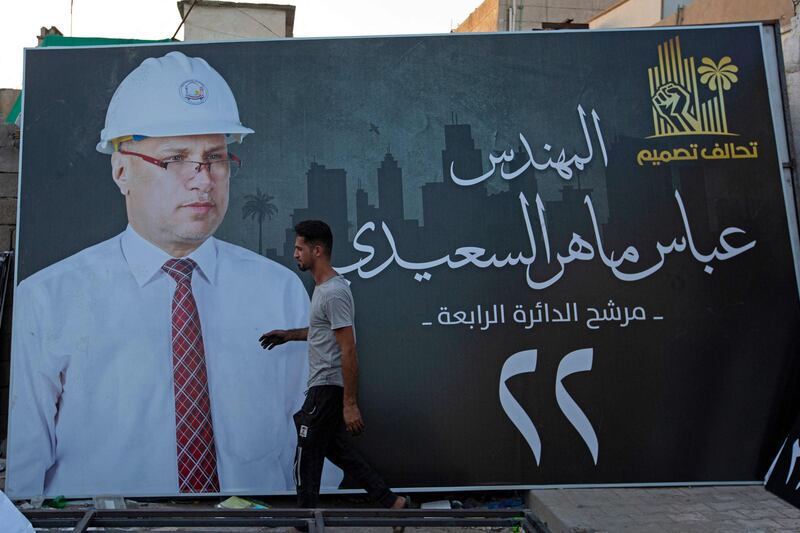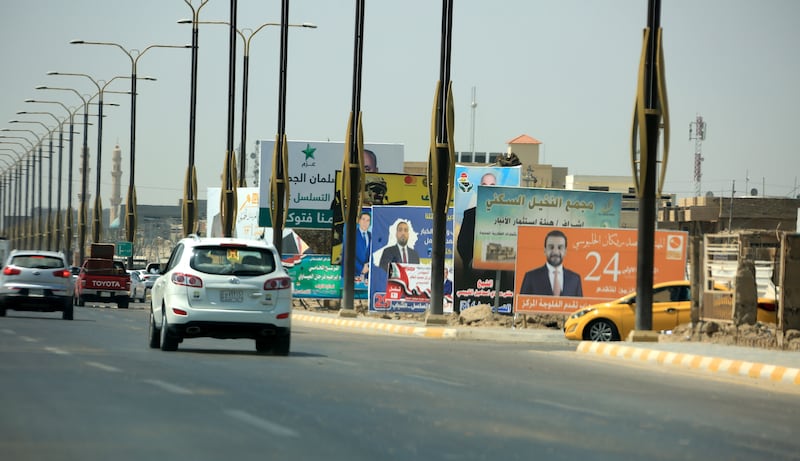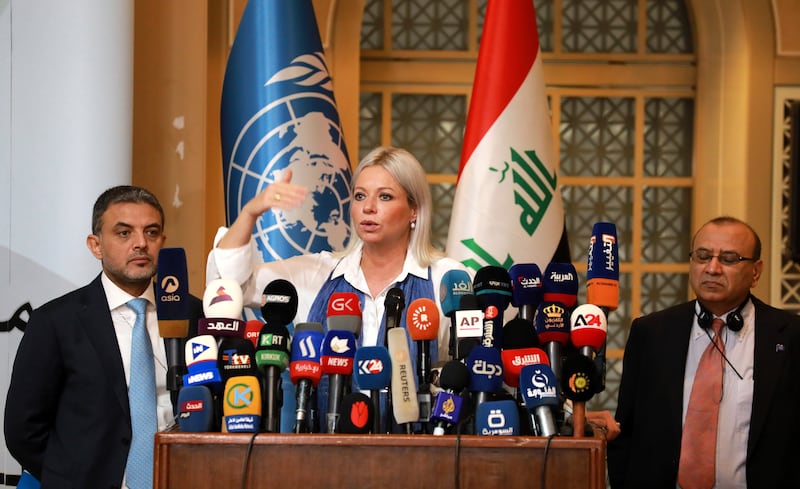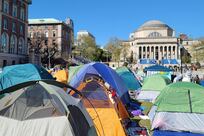Iraq’s elections are unlikely to bring about real change unless turnout is high and new candidates do not compete for the same seats, experts have said.
Millions of Iraqis are set to head to the polls on October 10 to vote for a new parliament, a poll seen as a vital test of whether the government will uphold its promise of reform and democracy.
“Elections will only bring about real change if voter turnout is high and if the youth-led movement coordinates not to compete for the same parliamentary seats,” Michael Knights, a fellow at the Washington Institute for Near East Policy, told The National.
Some of Iraq’s activists, who took part in the nationwide anti-government protests, have launched political parties to contest national elections. Many observers say they have the potential to enter the country’s political sphere and bring about meaningful change.
“If the independents stuck together, they could make a new bloc, but they would have to quickly agree on a leader and be disciplined, which seems unlikely today. But it might be possible in 2025 Iraqi national elections,” Mr Knights said.
“Unfortunately, the protestors are instead talking about boycotting as they missed their window to organise their efforts.”
Almost 25 million Iraqis are on the electoral roll, and voters will choose 329 members of parliament. But calls for a boycott of the ballot box are growing, especially from disillusioned young adults who accuse parties of intimidation, vote buying and cronyism.
Protesters’ demands
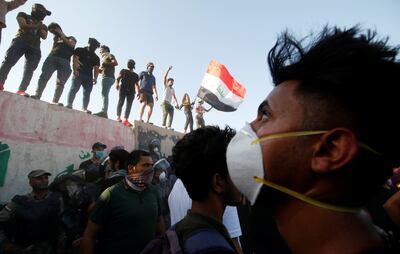
Early elections were a core demand of the protest movement that erupted from October 2019 to 2020.
The protesters have called for an end to endemic corruption by a political class that is largely seen as having squandered Iraq’s resources through greed and mismanagement over the past few years.
A heavy military crackdown ensued and hundreds of demonstrators were killed.
Last year, the government passed a new electoral law that divides the country into constituencies, giving independent candidates an opportunity to compete for parliamentary seats.
But experts believe that voter apathy and the public’s loss of confidence in the government will mean that major reforms will not be seen.
“I don’t think the upcoming elections will cause much change in parliament, there might be slight rearrangements in terms of the balance of established parties with a few independent candidates making it into parliament,” Lahib Higel, Crisis Group’s senior analyst for Iraq, said.
“Beyond that, we won’t see much significant shifts or changing power balances,” she told The National.
Although new faces enter parliament, they may still be connected to established parties, Ms Higel said.
The Iraqi public are disappointed in the political system and the direction in which the country is heading, Sajad Jiyad, a Baghdad resident and fellow with the Century Foundation, said.
“I don’t think the elections are going to change that perception and that elections won’t lead to significant reforms right away,” he said.
Little trust in the system
Mr Jiyad said the elections are highly unlikely to be a game changer and the public will see that.
“I’m predicting less turnout than last time, looking at 30 per cent this time,” he said, meaning elections will not change Iraq’s current path.
The country’s general population has very little trust in the electoral process to be fair and transparent and, therefore, elections this time around will have low voter participation, Ms Higel said.
“Voting in the elections won’t produce a change and, as a result, some of the parties that were established have announced their boycotting of the elections,” she said.
